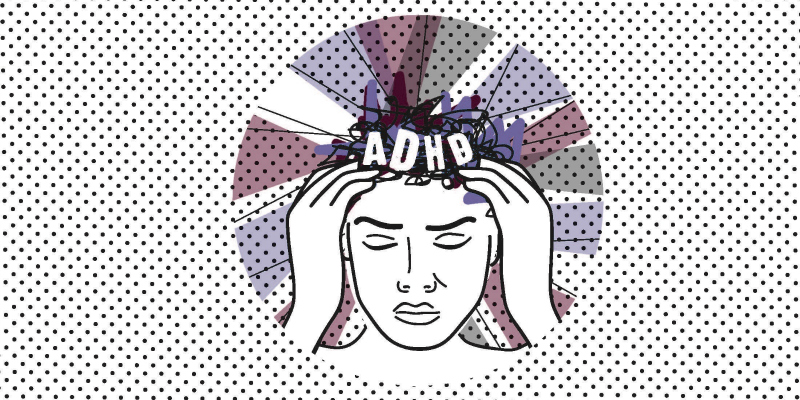By Nicole Gruter | Illustrated by Ann Christianson
How do you treat something when you don’t know what’s wrong?
Adults who unknowingly suffer from attention deficit hyperactivity disorder, commonly known as ADHD, often face this dilemma. According to the national nonprofit organization Children and Adults with Attention-Deficit/Hyperactivity Disorder, approximately 10 million adults have ADHD, with many of them unaware of their medical condition.
Often, the adult disorder is discovered through a parent’s child. Psychologist Deborah A. Hoffman, a counselor and coach for adults with ADHD, half-jokes, “It’s genetic; we get it from our children.” Hoffman explains that sometimes an adult’s ADHD is discovered through their child’s diagnosis. The parent puts the puzzle pieces of their own life together and realizes they suffer from the disorder as well.
“It affects every area of your life, from relationships, to jobs to simply feeling sane,” Hoffman continues. The distinction between everyday challenges and the adult disorder is the frequency, duration, and severity of symptoms, in addition to how many traits are present. Importantly, ADHD must also have been present in childhood to fit the criteria. Clinical guidelines followed by a qualified physician or mental health care professional can provide a proper diagnosis.
Identifying ADHD can offer welcome relief, alleviating frustration and confusion by shedding light on past behavioral situations and by providing guidelines for treatment. Through coaching, counseling and even time management apps, behavioral strategies can supplement medical treatment by creating a system of reminders and consistent behavior.
“Coaching will help look at your specific behavioral goals, what your obstacles are, and provide a timeline for the assists you need,” Hoffman explains. “The greatest gift you can give yourself is habits, because then you don’t have to decide things, like when to brush your teeth or when to take medication.”
Counseling addresses “the harmful emotions experienced by those with ADHD such as feeling ‘crazy’ or ‘stupid.’ Counseling works through the emotional part and looks at the history of what’s gotten in a client’s way psychologically,” says Hoffman.
Lastly, she stresses, “The right medicine in the right amount can make such a difference.”



